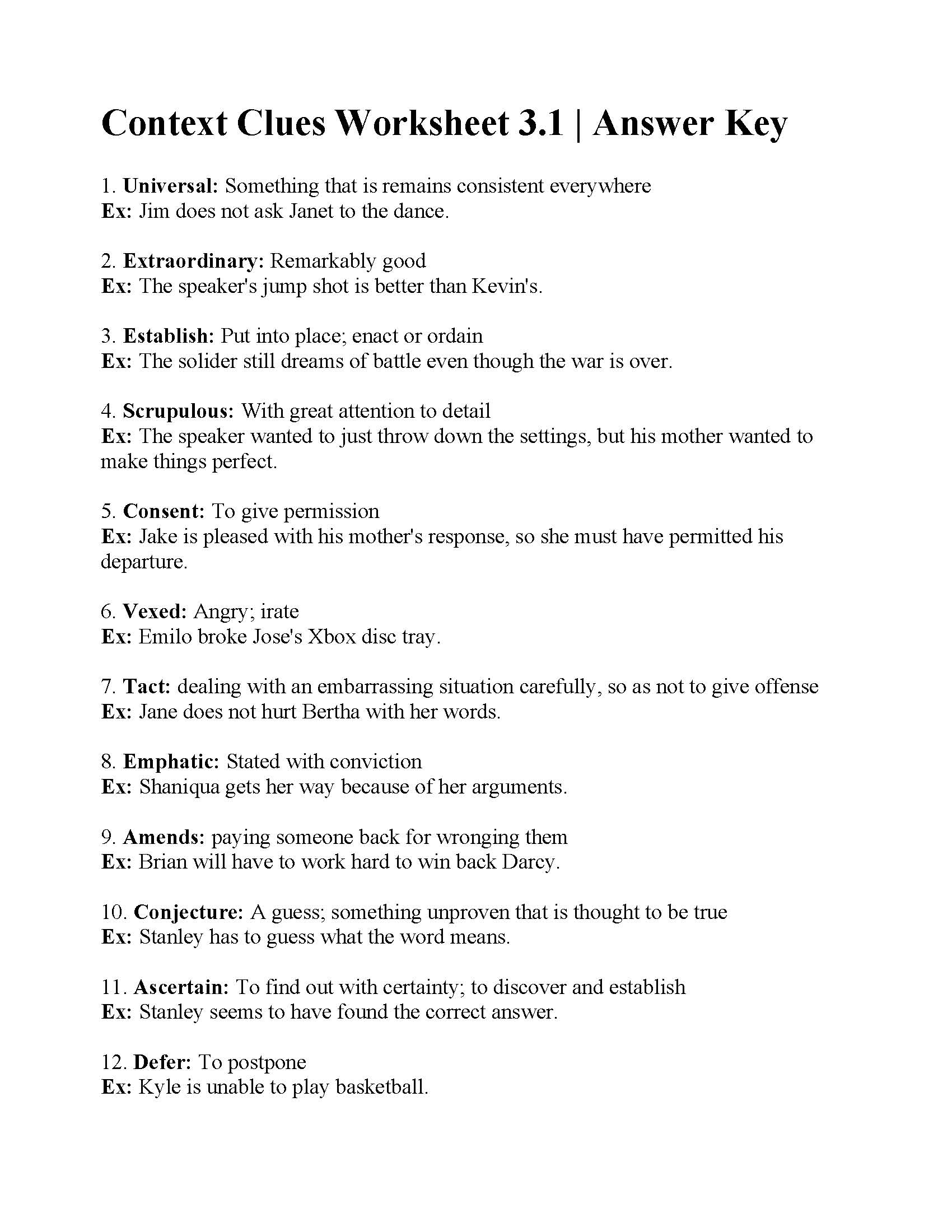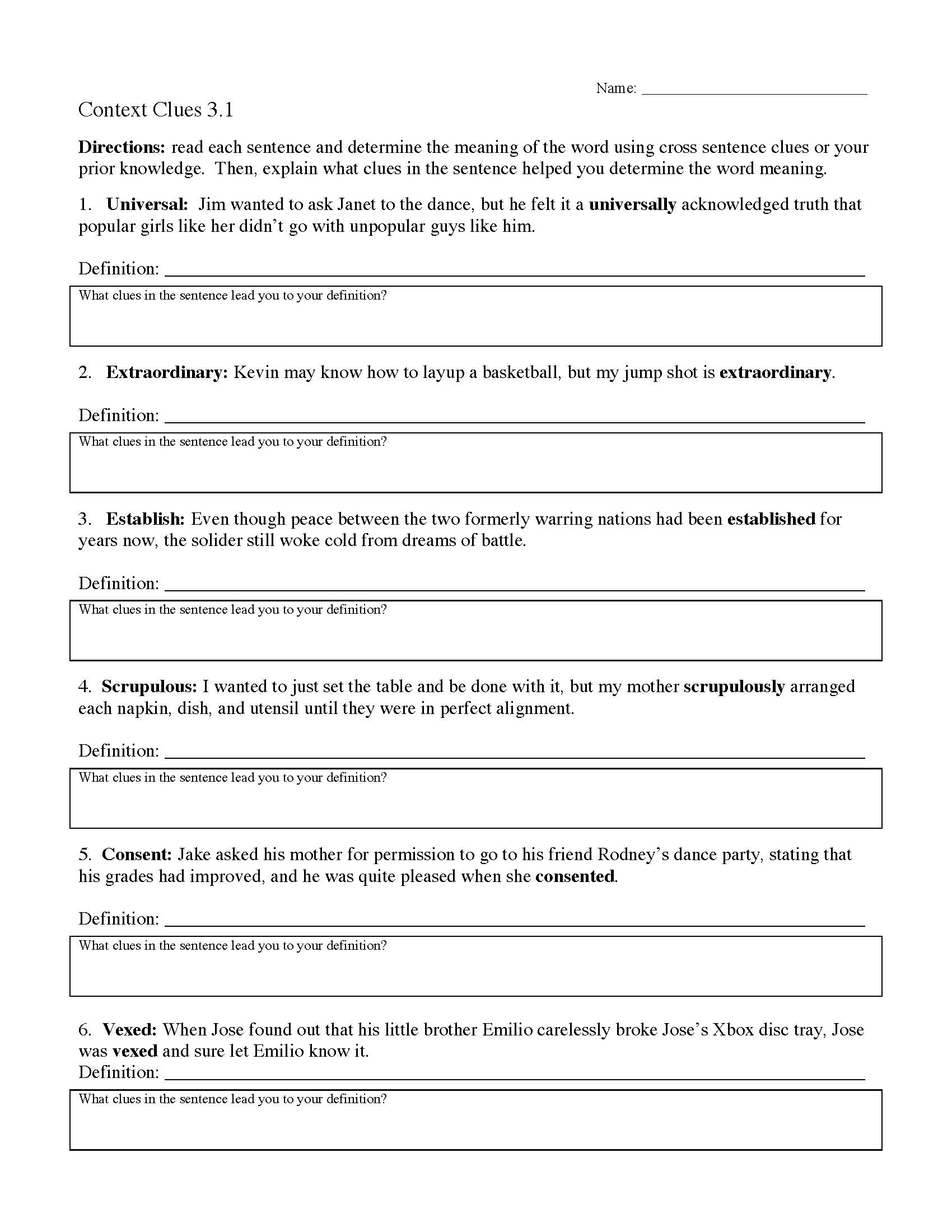Okay, folks, let’s dive into this “context clues 3.1 answer key” thing. I’ve been trying to get better at picking up the meaning of words from, well, context, and this seemed like a good exercise.
First off, I grabbed the worksheet. Honestly, I just searched for it online and printed out a copy. Nothing fancy. The important thing was to have it in front of me so I could write on it.

Then, I started working through the exercises. The worksheet had a bunch of sentences, and some of them were tricky! My method was pretty simple, really. For each sentence with a bolded word I didn’t fully understand, I:
- Read the whole sentence, like, really slowly. Sometimes I’d read it a couple of times.
- Looked for clues in the words around the tricky word. What was the sentence generally about? Was it positive or negative?
- Tried to guess, and wrote down what i thought about what the bolded word could be.
- If I was totally stumped, I’d skip it and come back later. Sometimes, figuring out other words helped me with the really hard ones.
The “Aha!” Moments
There were definitely a few times when it all clicked. Like, one sentence was talking about someone being “reluctant” to jump into a cold pool. I figured, “Okay, cold pool… nobody wants to jump into a cold pool,” so “reluctant” probably means something like “hesitant” or “unwilling.”
Checking My Work
Once I’d gone through the whole thing, front to back, that is when the answer key came in. I grabbed that (again, just a quick search) and started comparing my guesses to the actual answers.
Honestly, I didn’t get them all right. Not even close! But I was surprised by how many I got, or at least, how close I was. It’s like, I might not have known the exact definition, but I had the general idea.

The key part was going back and understanding why I got some wrong. I’d reread the sentence, look at the correct answer, and try to see the connection I missed. Sometimes it was a small detail, sometimes I just totally missed the overall meaning of the sentence.
It took time, and I am still learning. All in all, this “context clues” thing is a useful skill. It’s not about being perfect, it’s about getting better at figuring things out on your own. And honestly, that’s a pretty good feeling.